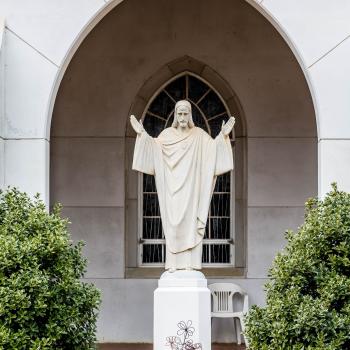 I am using the Ash Wednesday Gospel reading (Matthew 6:1-6, 16-18) for my Lectio Divina Diligens devotion.
I am using the Ash Wednesday Gospel reading (Matthew 6:1-6, 16-18) for my Lectio Divina Diligens devotion.
Lectio — reading
Jesus said to his disciples: “Take care not to perform righteous deeds in order that people may see them; otherwise, you will have no recompense from your heavenly Father. When you give alms, do not blow a trumpet before you, as the hypocrites do in the synagogues and in the streets to win the praise of others. Amen, I say to you, they have received their reward. But when you give alms, do not let your left hand know what your right is doing, so that your almsgiving may be secret. And your Father who sees in secret will repay you.
“When you pray, do not be like the hypocrites, who love to stand and pray in the synagogues and on street corners so that others may see them. Amen, I say to you, they have received their reward. But when you pray, go to your inner room, close the door, and pray to your Father in secret. And your Father who sees in secret will repay you…
“When you fast, do not look gloomy like the hypocrites. They neglect their appearance, so that they may appear to others to be fasting. Amen, I say to you, they have received their reward. But when you fast, anoint your head and wash your face, so that you may not appear to be fasting, except to your Father who is hidden. And your Father who sees what is hidden will repay you.”
Investigatio — research
This reading, from the heart of the Sermon on the Mount, is traditionally seen as the “blueprint” for Lent — a time of alsmgiving, prayer, and fasting. Matthew 6:7-15 expands Jesus’s teaching on prayer (including his instructions to pray the Our Father), so it is not included in the Lectionary for the day. But when verses 16-18 are read in conjunction with verses 1-6, what emerges is a beautifully crafted description — not just of Lent, but of a mature spiritual life, for any time of the year.
A Catholic Commentary on Holy Scripture points out that the theme of this reading is being on guard against hypocrisy. “The essential inwardness of the new era does not exclude the practice of external works with their danger of ostentation.” We can make a “show” of our pious works — but Jesus warns against that, calling his disciples instead to an interior authenticity that may be known only by themselves and God, but which is far more important than doing the right things (especially when it’s for the wrong reasons).
For contemplatives, I think the most important words in this passage are “secret” and “hidden.” When we exercise our interior integrity, what we do may be secret/hidden, but God will respond. The Greek words used here are kryptos and kryphaio — which carry not only the sense of “secret” and “hidden,” but also a sense of interiority or inwardness. Jesus is not interested in us going through the motions. He wants authenticity, integrity — a consistency between how we behave and what truly motivates us, deep within.
Meditatio — reflection
Saint Benedict said that “The life of a monk ought to be a continuous Lent.” (RSB 49:1). Perhaps he was saying that for monks, all of life — not just the forty days prior to Holy Week — should be give to almsgiving, prayer, and fasting. This really is no more rigorous that Jesus’s own teaching, as found in today’s Gospel. Yes, Lent may be a time for us to renew our commitment to caring for others, responding to the love of God, and caring for ourselves — but we need to remember that this is a year-round commitment.
Because, you see, the three mandates of Lent are all anchored in love:
- We give alms (share our wealth generously with others, especially those in need) as a way of loving our neighbors;
- We pray (responding to God’s call for solitude and adoration) as a way of expressing our commitment to loving God;
- We fast (disciplining our appetites so that we manage them rather than the other way around) as a way to more holistically love ourselves.
Since the first great commandment is to “love the Lord, your God, with all your heart, with all your soul, and with all your mind” and the second commandment, “You shall love your neighbor as yourself,” incorporates both love of neighbor and love of self, we can see that Lent is, at its foundation, a call simply to grow in love. The externalities of Lent: almsgiving, prayer, and fasting, all matter less than the love we are called to cultivate in our hearts.
Oratio — response
God, teach me to love the way you love. Teach me to hold my possessions gently enough that I can share them with others whenever it’s the loving thing to do. Teach me to be generous to you in prayer, in silence and in waiting. Teach me to trust you enough that my appropriate self-love is not calibrated by my luxuries or satiation, but paradoxically by my willing to forego creature comforts in service of you (and others).
Contemplatio — rest
Please join with me at a time that is appropriate for you, to simply rest in the silent presence of God, knowing that God loves you and me and all creation — whether we can feel it or not.
This is the first of a series of Lenten devotional posts, written in a spirit of Lectio Divina Diligens — lectio divina (sacred, meditative reading) combined with a contemplative approach to scriptural interpretation. Research into the interpretation of scripture is performed using Verbum.
Enjoy reading this blog?
Click here to become a patron.














